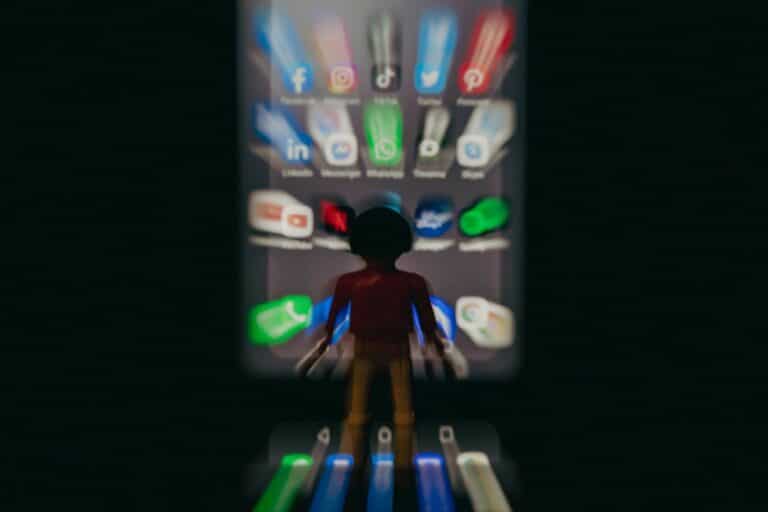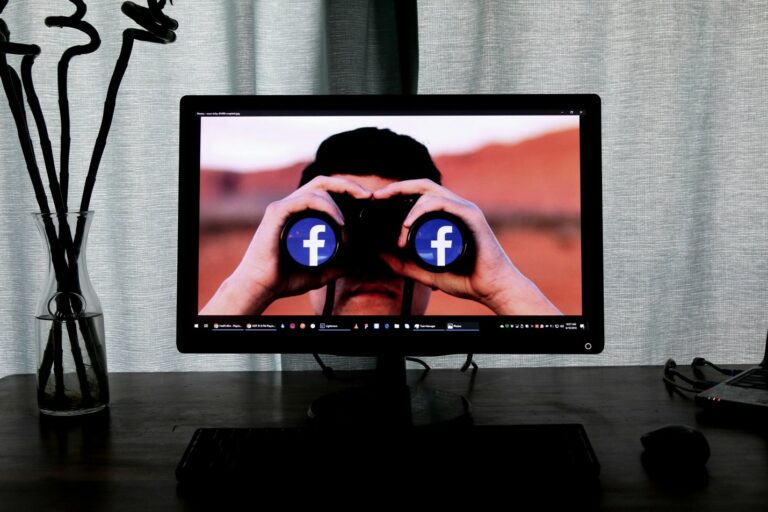The Psychology Behind Facebook Addiction and Screen Monitoring Solutions

Social media’s landscape is dominated by Facebook today, as many of us are highly aware! Most people are facing a problem that has long gone unnoticed. The rise of Facebook addiction has subtly infiltrated our lives, altering how we engage with others, how we see ourselves and perhaps even affecting the chemistry of our brains. With countless users logging in and adding to the amounts of data produced daily on the platform, exploring the psychology and consequences of Facebook addiction has become crucial for our health and overall well being.
The Nature of Facebook Addiction
Facebook addiction is a growing trend that impacts not just young adults and adolescents but spans across all age demographics. Thanks to smartphones and the convenience provided by the Facebook app, what used to be check-ins have transformed into a flow of updates becoming an essential part of daily life for many. What was initially about connecting with others and sharing information has evolved into a reliance on seeking approval. Or even endlessly consuming news feeds for some individuals.
Breaking Down the Addiction
Distinguishing between browsing and obsessive behavior is key if we want to truly understand Facebook addiction. Casual browsing can be harmless or even beneficial, for maintaining connections or staying informed. The issue isn’t that, but what comes afterwards? Some of us show an inability to manage our usage despite facing consequences. Being addicted to Facebook goes beyond a routine; it’s a tendency that can lead to real harm in both personal and professional life if not controlled.
As you’ve already seen, with Facebook, it can tempt us to spend hours scrolling through our feeds. There’s a way to tackle this issue. Focus on the content that truly captivates you. Or instead of browsing, think about alternatives. One of them would be to save a Facebook video. You could download Facebook videos directly to your phone. This allows you to save the videos that genuinely interest you for offline viewing whenever you want. By taking this approach you can cut down on your time spent on the platform since you won’t have to be online all the time to keep up with your content. This simple effective method can help reduce your Facebook usage and guide you towards a balanced digital lifestyle.
The Temptation of Social Media
Facebook’s captivating allure keeps pulling you in. The instant satisfaction it offers combined with the rewards from notifications creates a loop of positive reinforcement, similar to what happens with gambling addiction. The platform is designed meticulously from tailored news feeds to targeted ads, all aimed at keeping users engaged and hooked.
The Psychology Behind It
The aspects of Facebook addiction tap into our human instincts. Our need for approval, the fear of missing out and the constant comparison in interactions provide ground for the platform to exploit. The feel rush from social interactions and the escape it provides make for a powerful mix that can lead to dependency.
Why We Can't Break Free
Unraveling the reasons behind Facebook addiction involves looking at environmental factors on a broader scale. Each of these factors plays a role in fostering and sustaining this addiction.
The Emotional Void
For many people, becoming hooked on Facebook stems from needs. The platform serves as a means to validate ones self worth and boost self esteem; it’s especially appealing to those who may feel isolated or undervalued. The online realm offers a space to fulfill these needs potentially free from the complexities and vulnerabilities of in person interactions.
Social Influences
Within our circles, Facebook addiction often originates from pressures. The normalization and endorsement of usage by peers (with the aspect of social comparisons, of course) create an atmosphere where staying ‘connected’ constantly seems essential to avoid falling behind in social circles.
The Digital Age Landscape
The environmental triggers for Facebook addiction are perhaps the most conspicuous. The widespread availability of technology, the omnipresence of networking platforms and the cultural shift towards digital connectivity all contribute to a subconscious acceptance of addictive tendencies.
Acknowledging the Issue

Addressing Facebook addiction necessitates recognizing the warning signs that may initially be subtle but can become more pronounced as the addiction progresses.
Signs of Being Hooked
An indicator of being hooked on Facebook is the urge to check it multiple times a day sometimes, at the expense of other things you should be doing. It’s not about using Facebook; it’s about finding it hard to stay away from it.
Symptoms of Social Media Withdrawals
When people with an addiction to Facebook are away from it, they may go through symptoms to those seen in drug addicts. These can range from feeling slightly annoyed to experiencing anxiety showing a physical and emotional reliance on the platform.
Neglecting Real Life
Those who are addicted might ignore their real world relationships and responsibilities in favor of their interactions. The disconnect between their physical lives can cause conflict. Even, maybe, lead to social isolation and its associated mental health issues.
The Journey to Healing
Getting over Facebook addiction involves looking, setting goals and possibly seeking support.
Acknowledging the Issue
Taking that step is often the toughest. Acknowledging ones reliance on Facebook is crucial, before making any changes.
Establishing Boundaries
Once individuals recognize their habits they need to set boundaries on how time they spend on social media. This could mean taking breaks from platforms monitoring usage or simply creating specific times for being offline.
Taking a rounded approach that involves self control and some self-monitoring psychology, personal responsibility and the use of technology is often the effective method to tackle this issue. You could, for instance, use a screen time tracking app or even a social media tracker app to see how much time you’ve spent scrolling mindlessly.
Wrapping Up
Dealing with Facebook dependency goes beyond recovery; it’s something that concerns us all. It’s not just up to users but to society and the tech creators who mold our digital world. So let’s start recognizing the problem, seek support, and make use of resources! Let’s start lessening the effects of Facebook’s unhealthy addictions. This may regain command over our presence but also recapture the valuable time and attention needed for a healthy and satisfying life.